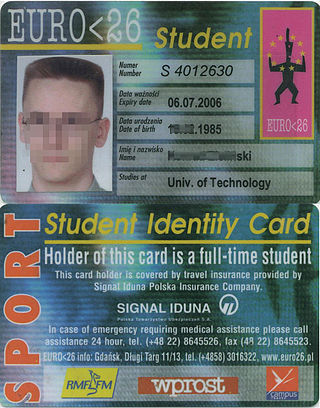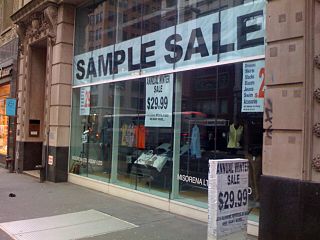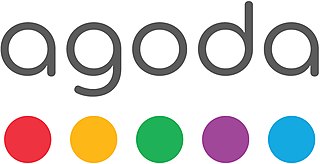
Price discrimination is a microeconomic pricing strategy where identical or largely similar goods or services are sold at different prices by the same provider in different market segments. Price discrimination is distinguished from product differentiation by the more substantial difference in production cost for the differently priced products involved in the latter strategy. Price differentiation essentially relies on the variation in the customers' willingness to pay and in the elasticity of their demand. For price discrimination to succeed, a firm must have market power, such as a dominant market share, product uniqueness, sole pricing power, etc. All prices under price discrimination are higher than the equilibrium price in a perfectly competitive market. However, some prices under price discrimination may be lower than the price charged by a single-price monopolist. Price discrimination is utilised by the monopolist to recapture some deadweight loss. This Pricing strategy enables firms to capture additional consumer surplus and maximize their profits while benefiting some consumers at lower prices. Price discrimination can take many forms and is prevalent in many industries, from education and telecommunications to healthcare.
Sales promotion is one of the elements of the promotional mix. The primary elements in the promotional mix are advertising, personal selling, direct marketing and publicity/public relations. Sales promotion uses both media and non-media marketing communications for a pre-determined, limited time to increase consumer demand, stimulate market demand or improve product availability. Examples include contests, coupons, freebies, loss leaders, point of purchase displays, premiums, prizes, product samples, and rebates.
Discounts and allowances are reductions to a basic price of goods or services.

Name your own price (NYOP) is a pricing strategy under which buyers make a suggestion for a product’s price and the transaction occurs only if a seller accepts this quoted price. What happens is that the seller waits for a potential buyer's offer and can then either accept or reject that 'named price' that the user had offered. As the Internet is continuously being developed and online marketplaces are becoming increasingly more popular, consumers have more choices in terms of product pricing. Popularized by the reverse auction pioneer, Priceline.com, such pricing strategy asks consumers to 'name their own price' for various products and services like air tickets, hotels, rental cars, etc. The first bid a consumer places and the subsequent bid increments express the consumer's willingness or unwillingness to haggle. "The economic argument is that the number of bids a consumer submits to win a product in a NYOP auction is determined by the bidder’s intention to trade off higher expected savings from haggling against the associated frictional costs". NYOP retailers do not post a price for their products, and the final price of the transaction is only determined via a "reverse auction process", and these are key features that distinguish hotels and travel intermediaries from NYOP retailers. Similarly, LetYouKnow, Inc. pioneered the application of its own patented matching method within confines of the reverse auction process, whereby consumers name their own price for new vehicles.

The list price, also known as the manufacturer's suggested retail price (MSRP), or the recommended retail price (RRP), or the suggested retail price (SRP) of a product is the price at which its manufacturer notionally recommends that a retailer sell the product.
Opacity or opaque may refer to:

A timeshare is a property with a divided form of ownership or use rights. These properties are typically resort condominium units, in which multiple parties hold rights to use the property, and each owner of the same accommodation is allotted their period of time. Units may be sold as a partial ownership, lease, or "right to use", in which case the latter holds no claim to ownership of the property. The ownership of timeshare programs is varied, and has been changing over the decades.
A no-frills or no frills service or product is one for which the non-essential features have been removed to keep the price low. The term "frills" originally refers to a style of fabric decoration. Something offered to customers for no additional charge may be designated as a "frill" – for example, free drinks on airline journeys, or a radio installed in a rental car. No-frills businesses operate on the principle that by removing luxurious additions, customers may be offered lower prices.
Yield management is a variable pricing strategy, based on understanding, anticipating and influencing consumer behavior in order to maximize revenue or profits from a fixed, time-limited resource. As a specific, inventory-focused branch of revenue management, yield management involves strategic control of inventory to sell the right product to the right customer at the right time for the right price. This process can result in price discrimination, in which customers consuming identical goods or services are charged different prices. Yield management is a large revenue generator for several major industries; Robert Crandall, former Chairman and CEO of American Airlines, gave yield management its name and has called it "the single most important technical development in transportation management since we entered deregulation."
Priceline.com is an online travel agency for finding discount rates for travel-related purchases such as airline tickets and hotel stays. The company facilitates the provision of travel services from its suppliers to its clients. Priceline.com is headquartered in Norwalk, Connecticut, United States and is wholly owned by Booking Holdings, which also owns Kayak.com, Booking.com and other sites. The company was founded in 1997. It operates in more than 200 countries and territories around the world and has partnerships with over 400 airlines and 300,000 hotels. Users can search for travel deals and discounts on the website, and in the past also offered the "Name Your Own Price" feature to bid on hotel rooms and flights.
Dynamic packaging is a method used in package holiday bookings to enable consumers to build their own package of flights, accommodation, and car rental instead of purchasing a pre-defined package. Dynamic packages differ from traditional package tours in that the pricing is always based on current availability, escorted group tours are rarely included, and trip-specific add-ons such as airport parking and show tickets are often available. Dynamic packages are similar in that often the air, hotel, and car rates are available only as part of a package or only from a specific seller. The term "dynamic packaging" is often used incorrectly to describe the less sophisticated process of interchanging various travel components within a package, however, this practice is more accurately described as "dynamic bundling". True dynamic packaging demands the automated recombination of travel components based on the inclusion of rules that not only dictate the content of the package but also conditional pricing rules based on various conditions such as the trip characteristics, suppliers contributing components, the channel of distribution, and terms of sale. Dynamic packages are primarily sold online, but online travel agencies will also sell by phone owing to the strong margins and high sale price of the product.
Hotwire is a travel website that offers airline tickets, hotel rooms, rental cars, and vacation packages. It operates by selling off unsold travel inventory at discounted prices. The company is headquartered in San Francisco, CA, Hotwire, Inc. is an operating company of the Expedia Group, which also operates the website ClassicVacations, Expedia, Hotels.com, Orbitz, Travelocity and Egencia.

Sample sales are used by retail businesses in order to discard excess merchandise. Sometimes these samples have been used by agencies to sell products that they will distribute to local vendors. Sample sales are often associated with the fashion industry. These sales are an opportunity to get near perfect merchandise at a fraction of the price. It is often difficult to have information on the date and time of sample sales, although there are websites which list information about sample sales. They are also used to draw in new clients, hoping that the new people will return to the company's store and buy more merchandise.
Revenue management is the application of disciplined analytics that predict consumer behaviour at the micro-market levels and optimize product availability, leveraging price elasticity to maximize revenue growth and thereby, profit. The primary aim of revenue management is selling the right product to the right customer at the right time for the right price and with the right pack. The essence of this discipline is in understanding customers' perception of product value and accurately aligning product prices, placement and availability with each customer segment.
A travel website is a website that provides travel reviews, trip fares, or a combination of both. Over 1.5 billion people book travel per year, 70% of which is done online.
An airline consolidator is a wholesaler of airline tickets, sometimes described as a broker. Airlines make tickets available to consolidators at significant discounts and special conditions to those available to the general public. Consolidators seek to reach more niche markets, and are able to offer discounts and fare flexibility that is relevant to the target group.

Agoda.com is an online travel agency catering primarily to consumers in the Asia-Pacific region, with headquarters in Singapore and operations in Bangkok, Thailand. Agoda facilitates reservations for lodging, flights, ground transportation, and activities. It is a subsidiary of Booking Holdings.
Allotments in the tourism industry are used to designate a certain block of pre-negotiated carrier seats or hotel rooms which have been bought out and held by a travel organizer with a huge buying power like a wholesaler, tour operator or hotel consolidator, and more rarely by a retail travel agent.

Booking.com is one of the largest online travel agencies. It is headquartered in Amsterdam, and is a subsidiary of Booking Holdings. In 2022, the company's mobile app was the most downloaded mobile app in the travel agency category. As of December 31, 2022, Booking.com offered lodging reservation services for approximately 2.7 million properties, including 400,000 hotels, motels, and resorts and 2.3 million homes, apartments in over 220 countries and in over 40 languages. It also offers flights in 54 markets and tours and activities in more than 1,200 cities.
Trip.com is a private international online travel agency headquartered in Singapore. The website is owned by Trip.com Group, one of the world's largest online travel agencies with over 400 million users worldwide, and also the parent of Skyscanner.






